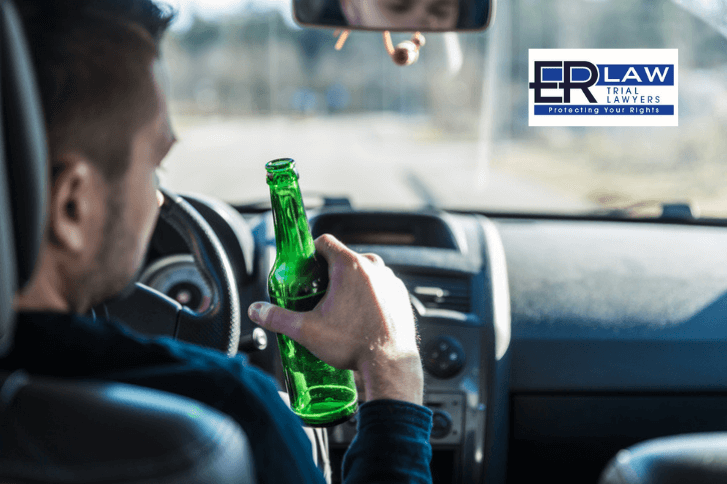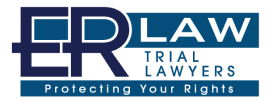Facing a DWI Charge in Reidsville, NC? Here’s What You Need to Know About the Penalties
March 1, 2024 – Eric Richardson

Facing a DWI (Driving While Impaired) charge can be a life-altering experience, especially in North Carolina where the laws are strict and the consequences significant. If you’ve been charged with a DWI, the reality is that you are now subject to a legal process that can deeply impact various aspects of your life. This makes it essential to understand the gravity of the situation and the potential penalties that come with a DWI charge and conviction in North Carolina.
Your defense strategy and your case’s outcome will depend greatly on the details surrounding your arrest. Understanding the law, the evidence against you, and the possible defenses available is critical in navigating the DWI charge. We urge you to reach out to a DWI lawyer as soon as possible for legal advice to address the charge effectively and minimize potentially life-altering consequences.
In this blog, we’ll focus on what you need to know about the penalties you can face if charged with a DWI. Continue reading to learn more. If you have questions, we invite you to contact a member of our team at (336) 290-6481 to discuss your case in detail.
Understanding DWI Laws
In North Carolina, a DWI is legally defined as operating a vehicle while under the influence of an impairing substance, which can include alcohol, prescription medication, illegal drugs, or over-the-counter medications that impair your ability to drive. North Carolina law does not differentiate between these substances—a DWI charge applies regardless of the type of impairment.
Blood Alcohol Concentration Limits
The legal limit for blood alcohol concentration (BAC) in North Carolina is:
- 0.08% for drivers 21 years and older
- 0.04% for commercial vehicle drivers
- Any detectable amount for drivers under 21
Exceeding these BAC limits while behind the wheel can result in a DWI charge.
Implied Consent Law
By driving in North Carolina, you automatically consent to chemical testing if you’re suspected of DWI, as per North Carolina’s Implied Consent Law. Refusal to take a blood, breath, or urine test results in an immediate 30-day license suspension and can lead to additional penalties. This immediate suspension is part of the state’s Administrative License Revocation (ALR) procedure, which is a civil administrative process separate from criminal court proceedings.
Penalties for DWI
When writing about the penalties for a DWI conviction in North Carolina, it’s crucial to highlight that North Carolina law distinguishes between three types of determinations (grossly aggravating, aggravating, and mitigating factors) and establishes six levels of offenses to tailor the punishment to the severity of the crime. Here’s a simplified summary:
Sentencing Hearing Requirement
After a DWI conviction, a judge is required to hold a sentencing hearing to consider aggravating or mitigating factors that might affect the sentence. The state must prove aggravating factors beyond a reasonable doubt, while the defendant must prove mitigating factors by a preponderance of the evidence.
Grossly Aggravating Factors
The judge or jury first determines if any grossly aggravating factors are present. These include prior DWI convictions within seven years, driving with a revoked license due to a DWI, causing serious injury while DWI, or having a child or disabled person in the vehicle at the time of the offense. The presence of these factors significantly increases the severity of the punishment.
Levels of Punishment
- Aggravated Level One (A1): Imposed if three or more grossly aggravating factors apply. It involves the highest fines and longest imprisonment terms.
- Level One: Applied if two grossly aggravating factors are present (or one specific factor regarding minors or disabled persons in the vehicle), with significant fines and jail time.
- Level Two: For one grossly aggravating factor, with lower fines and shorter jail time than Level One.
- Levels Three to Five: Determined by weighing aggravating against mitigating factors. Level Three applies if aggravating factors substantially outweigh mitigating ones, with moderate fines and jail time. Level Four and Five are for less severe cases, with mitigating factors balancing or outweighing aggravating ones, resulting in lighter fines and minimum jail times.
Aggravating and Mitigating Factors
- Aggravating factors include a high level of impairment, reckless driving, or a history of traffic offenses.
- Mitigating factors might include slight impairment without exceeding legal alcohol limits, safe driving at the time of offense, or a clean driving record.
Other Considerations
The law outlines procedures for jury involvement in determining aggravating factors, requirements for written findings of factors, and specific provisions for probation, including alcohol abstinence verified by monitoring systems. Additionally, for sentences to be effective, certain conditions of probation or special programs may be mandated, reflecting the court’s effort to not only punish but also rehabilitate offenders.
Here is a breakdown of the specific penalties for a DWI conviction in North Carolina, organized by level:
| Level | Fine | Jail Time | Jail Time Suspension Conditions | License Restoration |
|---|---|---|---|---|
| Level 5 | Up to $200 | 24 hours to 60 days | Imprisoned for at least 24 hours or perform at least 24 hours of community service | See below |
| Level 4 | Up to $500 | 48 hours to 120 days | Imprisoned for at least 48 hours or perform at least 48 hours of community service | See below |
| Level 3 | Up to $1,000 | 72 hours to 6 months | Imprisoned for at least 72 hours or perform at least 72 hours of community service | See below |
| Level 2 | Up to $2,000 | 7 days to 1 year | 90 days of alcohol abstinence and wear a continuous alcohol monitoring ankle bracelet (CAM) to prove abstinence + possibly 240 hours of community service | See below |
| Level 1 | Up to $4,000 | 30 days to 2 years | 120 days of alcohol abstinence, CAM to reduce jail time to 10 days | See below |
| Level A1 | Up to $10,000 | 1 year to 3 years | 120 days of CAM to reduce minimum 1 year in prison to 120 days | See below |
License Restoration After DWI Conviction in North Carolina
In North Carolina, DWI convictions trigger immediate and post-conviction license revocations. Initially, drivers face a 30-day civil revocation under G.S. 20-16.5 for failing or refusing a chemical test. Convictions lead to at least a one-year revocation, with possibilities for limited driving privileges post certain conditions—like a portion of the revocation elapsed, completion of a substance abuse assessment, and possibly installing an ignition interlock device. To restore driving privileges after revocation, individuals must reapply for a license, potentially retake tests, and provide proof of any court-ordered treatment or education programs.
For Level 2 and 1 DWI convictions, revocation periods extend, especially after multiple offenses, requiring similar steps for restoration but under stricter conditions. The most severe cases, Level A1 and third or subsequent offenses, involve minimum one-year to a permanent revocation of driving privileges, though “permanent” can sometimes lead to restoration after several years, strict scrutiny, and adherence to court-imposed conditions, including ignition interlock devices and proof of sobriety.
Charged with a DWI? Contact ER Law Trial Lawyers and Get Started on Your Defense
Facing a DWI charge in North Carolina can be a profoundly stressful experience, as you deal with uncertainty about your future, your driving privileges, and potential legal repercussions. Understanding your rights and navigating the complex legal landscape is crucial to achieving the best possible outcome. If you’ve been searching online for “criminal lawyers near me,” contact ER Law Trial Lawyers instead. Our DWI attorneys are experienced in handling DWI cases across Reidsville, NC, and we offer the robust legal support you need during this challenging time.
Why trust ER Law Trial Lawyers with your DWI defense? Our team brings a wealth of experience, a deep understanding of North Carolina DWI laws, and a commitment to personalized, compassionate legal service. We’re not just about legal representation; we’re about offering a lifeline—guiding you through each step of the legal process, defending your rights vigorously, and striving for outcomes that protect your future. From challenging the evidence against you to negotiating reduced penalties or fighting for a dismissal, our goal is to provide the strategic advocacy you need.
Don’t navigate the complexities of a DWI charge alone. Contact ER Law Trial Lawyers today at (336) 290-6481 or visit us online to schedule your free consultation. Let’s discuss your case, explore your options, and start crafting a defense strategy tailored to your unique situation. Your defense begins the moment you reach out to us!
Copyright © 2024. ER Law Trial Lawyers. All rights reserved.
The information in this blog post (“post”) is provided for general informational purposes only and may not reflect the current law in your jurisdiction. No information in this post should be construed as legal advice from the individual author or the law firm, nor is it intended to be a substitute for legal counsel on any subject matter. No reader of this post should act or refrain from acting based on any information included in or accessible through this post without seeking the appropriate legal or other professional advice on the particular facts and circumstances at issue from a lawyer licensed in the recipient’s state, country, or other appropriate licensing jurisdiction.
ER Law Trial Lawyers
1931 Richardson Drive
Reidsville, NC 27320
(336) 290-6481
https://erlaw-nc.com/
Ask a Question,
Describe Your Situation,
Request a Consultation
Contact Us And We’ll Tell You Everything You Need To Know!
Required Fields*
Your Information Is Safe With Us
We respect your privacy. The information you provide will be used to answer your question or to schedule an appointment if requested.
